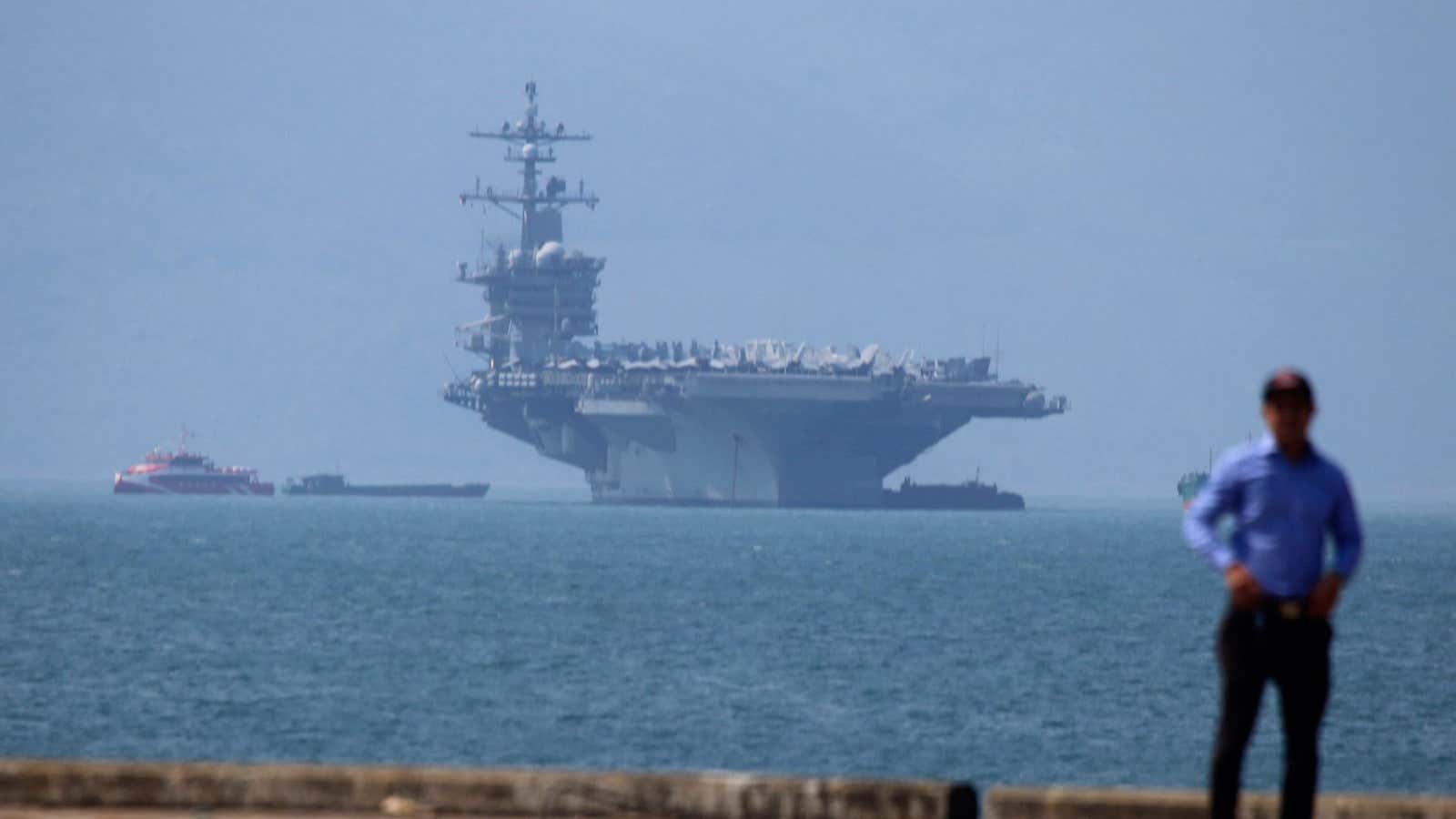Two weeks after he took over as commander of the USS Shiloh in June 2015, US Navy captain Adam M. Aycock punished a sailor for breaking curfew with an arcane sentence: three days in the brig while subsisting on nothing but bread and water.
Aycock would go on to use that punishment so frequently that his ship was nicknamed the USS Bread and Water. Sailors feared Aycock’s wrath, which could be incurred by the slightest of infractions, according to a ship survey taken during Aycock’s tenure and later cited by the Navy Times. “The most absurd charges are used to send sailors to the brig and put them on bread and water,” one sailor wrote in the survey. “The poor treatment of this command’s sailors has led to more than one sailor changing their career plans and choosing to leave the Navy rather than stay in and deal with any more of this garbage.”
Now, beginning January 1, bread and water—or “cake and wine,” as it is known among sailors—will no longer be among the options for a captain disciplining his crew. An updated Uniform Code of Military Justice, passed by Congress in 2016 and based on recommendations from an independent Department of Defense review board in 2013, will take effect New Year’s Day. Among the many changes, most of them minor procedural tweaks, is an explicit prohibition against putting those who misbehave on the bread and water diet.
“It just seems anachronistic and stupid,” retired US Navy captain Scott Tait told the New York Times. “I actually can’t believe it’s still around.”
The British Navy outlawed bread-and-water-as-punishment in 1891, a spokesperson told the Times. “In my expertise, we’ve at all times fed our folks,” the spokesperson said.
John Steed, a retired British army commander and former head of the UN’s counterpiracy unit for Somalia, also called bread and water “anachronistic,” and said depriving people of food “is no way to run and discipline a professional navy.”
“I’ve been a subordinate commander and a commanding officer and used minor punishments quite effectively without this sort of medieval practice,” Steed told Quartz. “I probably sound boring but we expect these young men and women to fight for their countries, [so] they have to be treated with respect. The days of being tied to the mast and lashed are well and truly over.”
Militaries the world over have a unique set of rules that include offenses that wouldn’t be considered violations in the civilian world, Steed explained. “Disobeying a lawful command” would be one example, he said. Punishment for such a thing in most countries’ navies might include restriction of privileges, or some such, “but do not include starving a sailor even for three days.”
US Navy sailors on the bread-and-water regimen are permitted to eat as much bread and drink as much water as they like, three times a day, according to the Navy’s brig regulations (which can be found at the bottom of this post). No prisoner on bread and water/diminished rations “shall be compelled to perform strenuous physical activity,” although they are allowed to “participate in an hour of stretching and minimal exercise in his/her cell.”
Brig rules also typically allow sailors “religious and literary materials…to utilize during authorized reading periods.”
Two US Navy secretaries have called for abolishing the practice of feeding sailors nothing but bread and water, first in 1882 and again in 1921. Still, some see it as a vital component in any good military disciplinarian’s toolbox.
“It’s not that bad—that’s why I like it,” Capt. Kevin Eyer, a former Navy commander and bread-and-water proponent who regularly ordered it as punishment for minor misconduct violations, told the Times. “It sounds medieval, and that is sort of the point,. Sometimes you just need to scare a kid. We want them to succeed, but you need to give them a kick in the pants.”
Corporal punishment, which includes kicking, is no longer allowed onboard US Navy vessels, nor is flogging, which Congress banned in 1862.
Looking for more in-depth coverage from Quartz? Become a member to read our premium content and master your understanding of the global economy.
